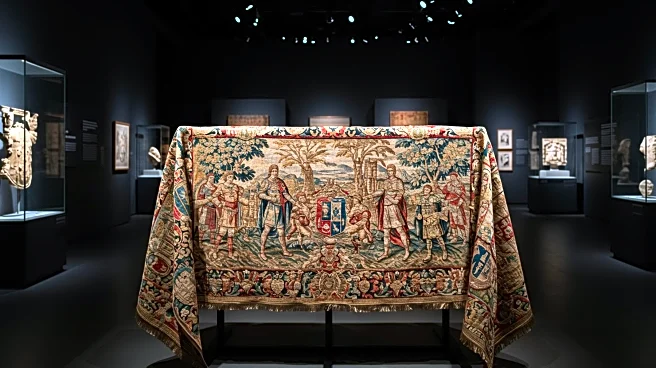What's Happening?
French officials have attempted to negotiate free or discounted admission for French citizens to view the Bayeux Tapestry during its exhibition at the British Museum. This request was part of a broader cultural exchange, which includes the loan of the Sutton Hoo treasures and the medieval Lewis Chessmen to France. The Bayeux Tapestry, a 900-year-old embroidery depicting the Norman Conquest of 1066, is set to be displayed at the British Museum from September 2026 to July 2027. The proposal for free admission was dismissed by British negotiators, who considered it unlikely to happen. Additionally, French negotiators initially sought to borrow the Rosetta Stone, a key artifact in the British Museum, but this request was also denied.
Why It's Important?
The cultural exchange between France and the UK highlights the significance of international cooperation in the arts and heritage sectors. The Bayeux Tapestry's loan is seen as a symbol of renewed Anglo-French relations, particularly following Brexit. The exhibition is expected to draw significant attendance, contributing to cultural tourism and economic activity in the UK. The negotiations reflect the complexities of international cultural diplomacy, where historical artifacts play a role in fostering bilateral relations. The refusal to loan the Rosetta Stone underscores the challenges in negotiating the exchange of culturally significant items.
What's Next?
The Bayeux Tapestry's exhibition at the British Museum is anticipated to be a major cultural event, with preparations underway to ensure the artifact's safe transport and display. The exhibition may prompt further discussions on cultural exchanges between the UK and France, potentially influencing future diplomatic negotiations. Stakeholders in the arts and heritage sectors will likely monitor the exhibition's impact on cultural diplomacy and tourism.











